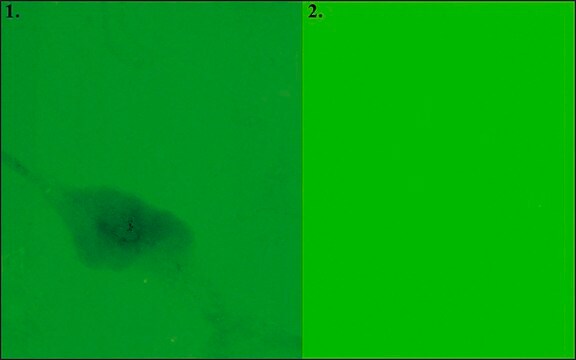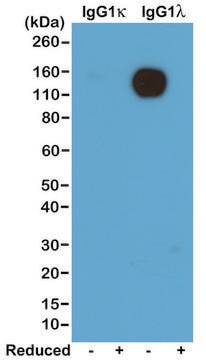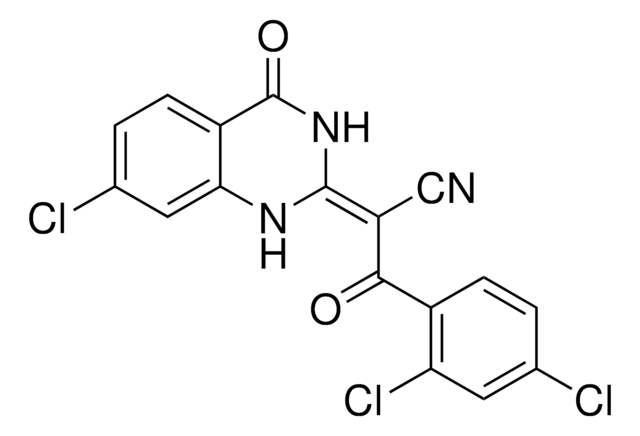SML0642
Chaetoglobosin A
from Chaetomium globosum, ≥98% (HPLC)
Synonyme(s) :
4,7,14,14a,15,15a,16a,16b-Octahydro-7-hydroxy-14-(1H-indol-3-ylmethyl)-4,6,15,15a-tetramethyl-, 3H-Cyclotridec[d]oxireno[f]isoindole-8,11,12(13H)-trione
About This Item
Produits recommandés
Source biologique
Chaetomium globosum
Niveau de qualité
Pureté
≥98% (HPLC)
Solubilité
DMSO: soluble 10 mg/mL
methanol: soluble 10 mg/mL
Température de stockage
−20°C
InChI
1S/C32H36N2O5/c1-17-8-7-10-22-29-31(4,39-29)19(3)27-24(15-20-16-33-23-11-6-5-9-21(20)23)34-30(38)32(22,27)26(36)13-12-25(35)28(37)18(2)14-17/h5-7,9-14,16-17,19,22,24,27-29,33,37H,8,15H2,1-4H3,(H,34,38)/b10-7+,13-12+,18-14+/t17-,19-,22?,24-,27-,28+,29-,31+,32+/m0/s1
Clé InChI
OUMWCYMRLMEZJH-VIRVUJSBSA-N
Application
Actions biochimiques/physiologiques
Cytochalasins were also found to inhibit glucose transport in human erythrocytes by binding to the glucose carrier on the erythrocyte membrane. Chaetoglobosin A was found to inhibit nematode proliferation and egg hatching. It also causes mortality of second stage juveniles of Meloidogyne incognita.
Autres remarques
Code de la classe de stockage
11 - Combustible Solids
Classe de danger pour l'eau (WGK)
WGK 3
Point d'éclair (°F)
Not applicable
Point d'éclair (°C)
Not applicable
Certificats d'analyse (COA)
Recherchez un Certificats d'analyse (COA) en saisissant le numéro de lot du produit. Les numéros de lot figurent sur l'étiquette du produit après les mots "Lot" ou "Batch".
Déjà en possession de ce produit ?
Retrouvez la documentation relative aux produits que vous avez récemment achetés dans la Bibliothèque de documents.
pigmentation and sporulation in Chaetomium globosum
Notre équipe de scientifiques dispose d'une expérience dans tous les secteurs de la recherche, notamment en sciences de la vie, science des matériaux, synthèse chimique, chromatographie, analyse et dans de nombreux autres domaines..
Contacter notre Service technique








